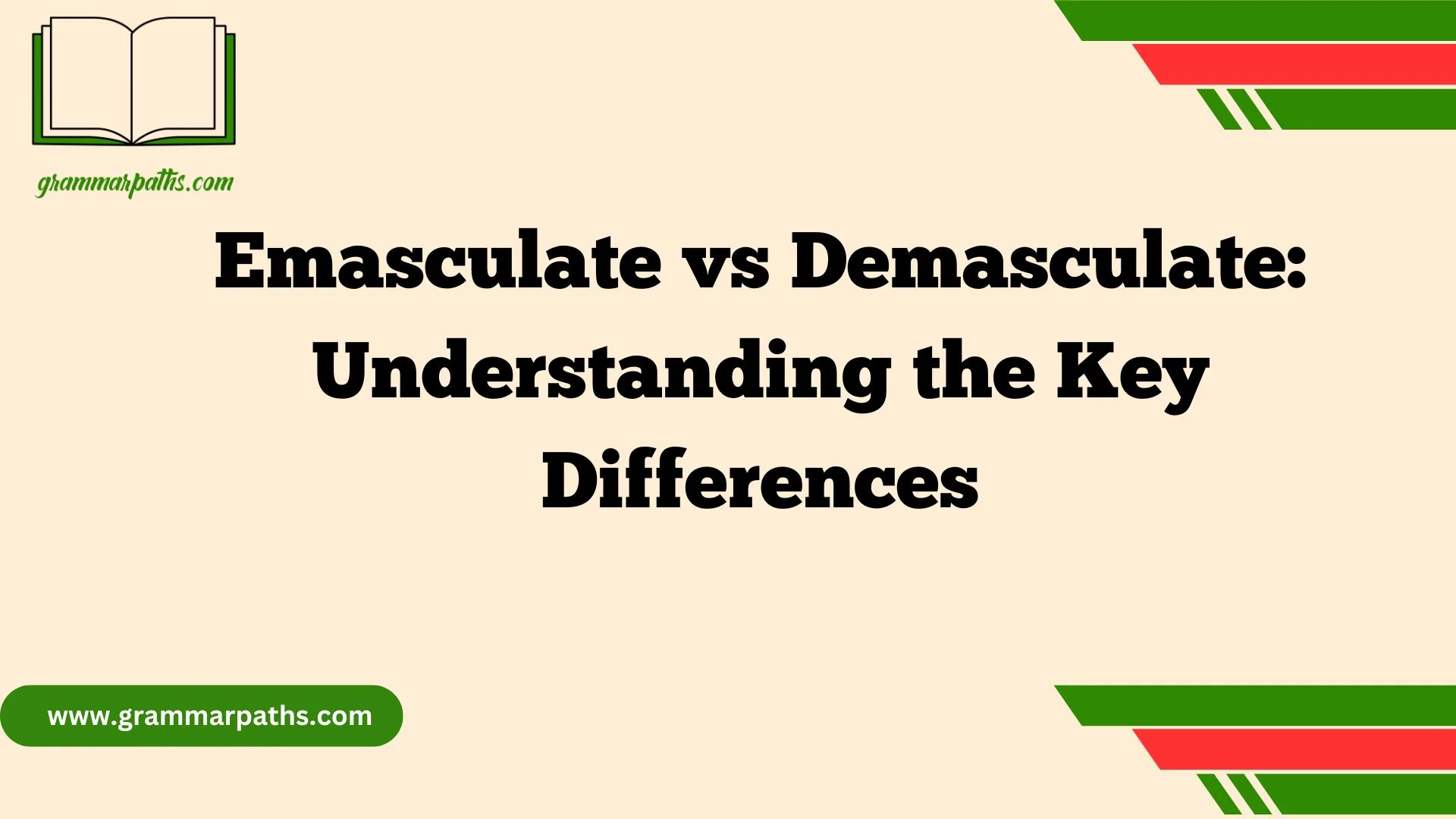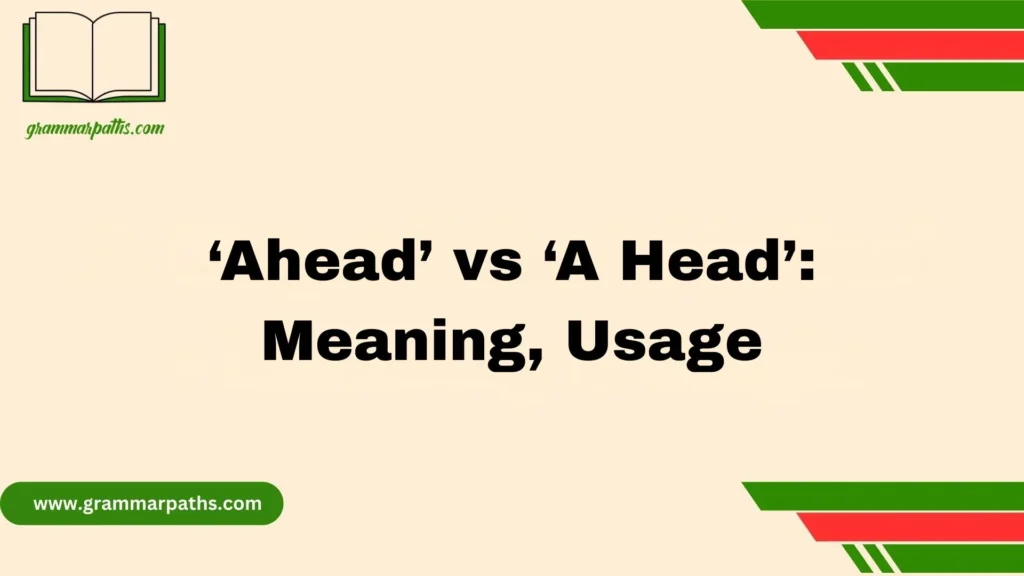Emasculate vs Demasculate It’s a question that often arises due to confusion between these two similar-sounding words. While they may appear interchangeable, their meanings, usage, and emotional connotations differ significantly. Understanding the difference between emasculate and demasculate can help you use the right term in both casual conversation and professional writing.
The word emasculate is more commonly used and typically refers to the act of depriving a man of his masculinity, strength, or power—either physically, emotionally, or symbolically. It often carries a negative tone and is linked with the loss of male identity or confidence. On the other hand, demasculate is a rarer, less standard variation that’s often used interchangeably with emasculate, but it’s not widely accepted in formal contexts.
Quick Summary:
In many real conversations I’ve had as a mentor, the tension between masculinity, identity, and emotional expression is constant. Emasculate vs. Demasculate: Understanding the Key Difference matters because it ties into how society builds expectations, promotes stereotypes, and often labels vulnerability as weakness.
But emotional depth, psychological insight, and assertiveness are not opposites—they coexist. The roles men are expected to play, influenced by toxic norms, often suppress dialogue, block communication, and bury true strength behind guilt, shame, and false images of dominance.
What I’ve seen in personal coaching is a slow evolution—a change and shift in mindset that leads to real healing. Words like emasculation and demasculation aren’t just terms; they shape how behavior and humanity are perceived. Redefining the image of a man includes making room for sensitivity, acceptance, and empathy, not just confidence and control. It’s a journey of redefining and redefine the idea of strength—finding authenticity, building awareness, and embracing growth. That’s where empowerment lives—not in shame, but in balanced understanding.
Word Origins & Etymology
Understanding word roots often clears up confusion. Let’s unpack where these terms come from—and why only one thrives.
Emasculate
- Latin root: masculus (“male, masculine”)
- Prefix: e- (from Latin ex-, meaning “out of” or “remove”)
- Original meaning: “To remove male reproductive organs” (a medical sense)
- Figurative shift: By the 17th century, writers began using it to mean “to deprive of strength, spirit, or confidence”—especially in a gendered way.He felt his confidence ebb away, as if the harsh critique had emasculated him.
Why it sticks: Over centuries, “emasculate” kept evolving from literal castration to any strong undermining of one’s agency or masculinity.
Demasculate
- Constructed: de- (“remove, reverse”) + masculate (root from masculus)
- Rarity: Not widely attested in major dictionaries; appears occasionally in niche texts or error-driven usage.
- Status: Lacks standard approval—most style guides mark it as non-standard or archaic.
Key point: Because “emasculate” already covers both literal and figurative senses, English never needed “demasculate” to gain traction.
Definitions & Nuances
| Term | Literal Meaning | Figurative Meaning | Usage Status |
| Emasculate | Remove male organs | To weaken masculinity, spirit, or self-confidence | Standard, common |
| Demasculate | (Rare/archaic) remove male traits | (Rare) intended as “to deprive of manliness”—but awkward | Non-standard |
Emasculate appears in every major dictionary (Merriam-Webster, Oxford).- Demasculate shows up only in unverified or user-generated entries online.
Common Mistakes & Misconceptions
Writers often stumble with these near-twins. Here’s how to avoid tripping up:
- Confusing prefixes:
- e- vs de- both signal removal, but only e- paired with masculate built a legacy.
- e- vs de- both signal removal, but only e- paired with masculate built a legacy.
- Mixing with “castrate”:
- Castrate = literal removal of reproductive organs in animals or humans (medical/veterinary).
- Emasculate = can be literal but more often figurative (confidence, spirit).
Examples in Media
- ❌ Incorrect: “The journalist demasculated the politician’s reputation.”
- ✅ Correct: “The journalist emasculated the politician’s reputation.”
- ❌ Incorrect: “She felt demasculated after the critique.”
- ✅ Correct: “She felt emasculated after the critique.”
Tips to Avoid Errors
- Check a dictionary before using “demasculate”—you’ll likely find no entry.
- Default to “emasculate” when you mean “to weaken or undermine” in any sens
- When in doubt, rephrase: “The harsh words undermined his confidence.”
Usage in Sentences
Using “emasculate” correctly is straightforward once you internalize its scope. Below are realistic examples and alternatives.
Correct Use of “Emasculate”
- He felt emasculated when his team ignored his input.
- Public humiliation can deeply emasculate even the most confident person.
- Budget cuts threatened to emasculate essential services.
Phrases to Avoid “Demasculate”
- Instead of ❌ “demasculate,” use ✅ “emasculate” or neutral verbs:
- Weaken (his confidence)
- Undermine (her authority)
- Sap (their resolve)
Alternative Expressions
- To undermine
- To sap strength
- To strip away confidence
- To diminish one’s authority
Psychological & Cultural Impact
Words carry weight. When we call someone “emasculated,” we tap into cultural attitudes about masculinity, power, and identity.
How Language Shapes Perception
- Gender norms: Equating weakness with loss of masculinity fuels toxic masculinity.
- Emotional fallout: Feeling “emasculated” often leads to shame, anger, or depression.
Case Study: John, a mid-level manager, delivered a flawed presentation. His boss joked that the mistake “emasculated” him. John later reported decreased motivation and self-worth—a classic example of how a single word can trigger a downward spiral.
Cultural Variations
- In some societies, honor and face weigh heavily—words implying emasculation can destroy social standing.
- Other cultures emphasize collective well-being; “emasculate” carries less personal sting but still signals undermined respect.
Responsible Communication
- Avoid weaponizing “emasculate” as an insult.
- Choose neutral language when addressing mistakes: “That setback undermined your credibility,” for instance.
Practical Tips for Writers & Speakers
Whether you’re drafting an essay, leading a workshop, or chatting with friends, follow these guidelines:
- Use “emasculate” sparingly. Its emotional punch can overpower your point.
- Context matters: Reserve it for situations involving real or perceived loss of agency.
- Opt for neutral terms in professional settings:
- “Undermine,” “weaken,” “diminish.”
- Check your tone: If you sense judgment, rephrase. Aim to inform, not insult.
Quick-Reference Cheat Sheet
| Scenario | Better Choice |
| Criticizing a business decision | “That decision undermined profits.” |
| Describing loss of confidence | “He felt undervalued, not emasculated.” |
| Talking about literal removal (medical) | “Castrate” (if literal) |
Summary & Key Takeaways
- Emasculate: Official, versatile—means literal removal or figurative weakening.
- Demasculate: Non-standard, avoid it.
- Castrate: Use only for medical/literal contexts.
- Alternatives: “Undermine,” “weaken,” “sap confidence.”
FAQS
What is the difference between emasculate and demasculate?
Emasculate means to deprive a man of his male role or identity, often emotionally or socially.Demasculate is a less common synonym, often used interchangeably but less formally or precisely.
What is the meaning of Demasculation?
Demasculation refers to the process of making someone feel less masculine.It often implies loss of traditional male traits, power, or identity.
What is a synonym for demasculated?
A synonym for demasculated is emasculated, as both imply a loss of masculinity.Other close terms include weakened, disempowered, or degraded (context-dependent).
Is demasculine a word?
Demasculine is not a standard word in the English language.It’s rarely used and not recognized in major dictionaries.
What is the meaning of Demasculinizing?
Demasculinizing means removing or reducing masculine traits or qualities.It can refer to physical, emotional, or social aspects of masculinity.
What is emaculate?
Emaculate is an archaic or rare word meaning to make spotless or pure.It is not commonly used in modern English.
Conclusion:
In summary, while emasculate and demasculate may seem similar, their usage, frequency, and acceptance in formal language set them apart. Emasculate is the widely recognized and accepted term used to describe the act of stripping away a man’s masculinity, whether emotionally, socially, or physically. It’s a term deeply rooted in linguistic history and commonly used in both literature and modern discourse.
On the other hand, demasculate is far less common and often viewed as a nonstandard synonym. Though some may use it interchangeably with emasculate, it lacks the same level of grammatical authority and can seem awkward or unfamiliar in professional or academic writing.
When in doubt, choosing emasculate is the safer and more appropriate option. By understanding the nuances between these two words, you can communicate more clearly and effectively—especially when discussing topics involving gender roles, identity, or emotional impact. Clear language leads to better understanding, and knowing the right word to use is a key part of effective communication.

Emma Brooke is a passionate language expert and contributor at GrammarPaths.com, where she helps learners navigate the complexities of English grammar, idioms, and effective writing. With a strong academic background and years of teaching experience, Emma excels at turning tricky grammar rules into simple, practical lessons that readers can easily grasp.












